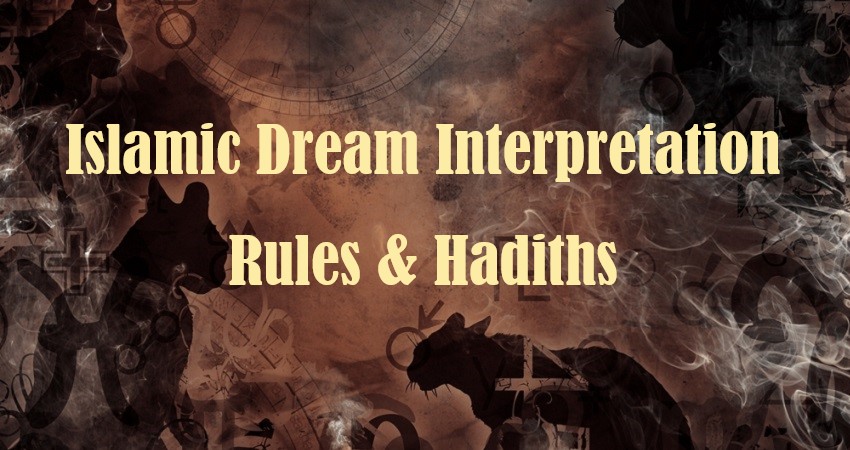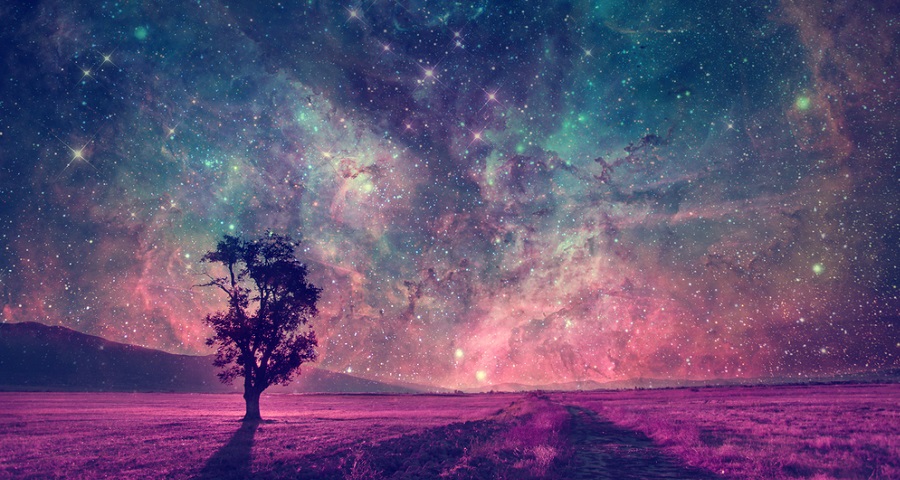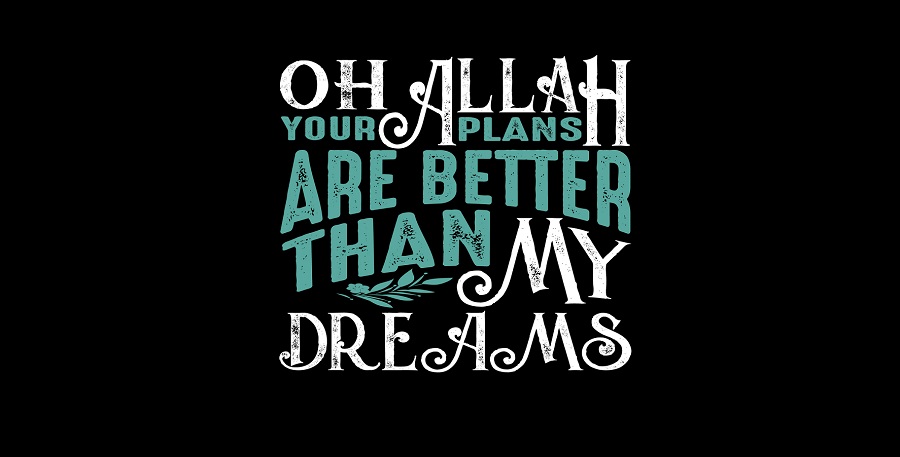In Islam, dreams are considered to be a kind of spiritual perception. The Quran refers to dreams as Ru’yaa (vision), Manam (sleep), Hulum (dream) and Bushra (tidings). And, dream interpretation, also known as oneiromancy, is described using the Arabic terms ‘Tafsir’ or ‘Tabir’ amongst Muslims. Many Islamic dream interpretation theories and observations have been proposed by various Muslim thinkers and philosophers over the past 1500 years. Several of these observations and understandings correspond with the recent theories proposed by modern psychologists.
How to interpret dreams in Islam?
Ibn Sirin, the most popular dream interpreter in the history of Islam, devised a system for dream interpretation based on the fact that both Hadith and the Qur’an teach Muslims to respect the psychological and spiritual importance of the dream experience. According to Ibn Sirin, the interpretation of a dream depends entirely on the life circumstances and personal characteristics of the dreamer along with the meaning of the dream. Besides, the Prophet Muhammad (PBUH) said, “There are three types of dreams: a righteous dream which is glad tidings from Allah, the dream which causes sadness is from Shaitan and a dream from the ramblings of the mind.”
Islamic Dream Meaning
According to Sunnah, dreams are divided into three categories:
1. Good visions (Ru’yaa)
These constitute true or good dreams, which are believed to be from Allah. Those who spend their life truthfully are more likely to have true dreams. Also, the Prophet Muhammad (PBUH) advised that those who have good dreams should share them with only those who they like and trust.
2. Bad dreams (Hulum)
Bad dreams are believed to be from Shaitan. Anyone who sees a disturbing or unpleasant dream is advised to spit thrice on the left side immediately after waking up to seek Allah’s protection against the accursed devil. The Prophet Muhammad (PBUH) also advised offering prayer if anyone ever has a bad dream and never disclose it to anyone.
3. Islamic dream interpretation of fire
Dreaming about lighting a fire and seeing others being led by its light suggests that the individual who lit the fire will eventually become a source of illumination for others via knowledge and wisdom. Worshipping the fire in a dream also connotes a desire to serve a ruler or monarch, as well as the possibility of erring. If the fire that is being worshipped is not lit in the dream, it indicates that the person is looking for illegal sources of gain.
4. Islamic dream interpretation of sea
The ocean or sea represents a huge realm and a strong dynasty as long as there is no evidence of mud, silt, or ominous waves. In a dream, if the person sees himself swallowing the entire sea, and only the king can see him, it foretells that he will rule and have a long life. If one dreams of drinking from it to satiate their thirst, this portends wealth, power, and long life. If he fills a pitcher with its water in a dream, it portends fortune, or Allah will give him a generous present that includes wealth and high status. His reputation, nevertheless, will last longer than his wealth.
5. Islamic dream interpretation of snow
In a dream, snow, and fire that are next to one other, stand in for love, passion, and connection. Snow in a dream might represent money or a medical breakthrough. If snow is present throughout its season, it represents wiping away troubles and revealing rivals or jealous friends. If one sees snow in their dream during a season other than winter, it might represent pain, profanity, or hurdles impeding their journey objectives. It could also represent disease or paralysis.
6. Dreams from one’s self
One’s thoughts are the source of dreams and they do not come from either Allah or Shaitan.
Things to Remember
Suggested Read:Performing Umrah With Kids: Tips To Plan Well, Rules For Minors
There are certain things that should be kept in mind by the Muslims attempting to interpret a dream. Following are some rules of Islamic dream interpretation:
- It is advisable to avoid mentioning a dream for interpretation to anyone other than a scholar or a person you trust to be truthful and sincere.
- Anyone who sees the Prophet in a dream has undoubtedly had a true dream as it is impossible for Satan to imitate the shape of the Prophet.
- If a person sees the same dream multiple times or multiple people see the same dream, then it is a sign of truth and the dream is a true vision.
- According to Islam, a dream that comes from Allah as a glad tiding usually takes a long while to occur. On the other hand, a warning from Allah occurs swiftly.
- True dreams are usually short and concise. If a person has a long dream that seems endless or if someone sees a dream in which he/she is being chased without end, then it most likely means that the dream is meaningless.
- Islamic dream interpretation is presumptive and not certain. It is possible that a dream is interpreted one way while reality plays out quite differently. So, it is advisable not to make major life decisions based entirely on the interpretation of a dream.
- The Prophet Muhammad (PBUH) has prohibited anyone from adding something to or subtracting anything from a dream while relating it for interpretation. Doing this can spoil or corrupt a dream and is considered a great sin.
- The same symbol occurring in a dream can have different meanings for different people as per Islamic dream interpretation.
Islamic Dream Interpretation Hadiths
Prophet Muhammad (PBUH) said, “Indeed the worst of lies is that of a person who falsely claims to have dream.” (Sahih Al-Bukhari)
The Prophet also said, “Whoever claims to have dream which he did not have, will be ordered to tie two barley grains together, which he will never be able to do; and if somebody eavesdrop on some people’s conversation which they didn’t want him to hear or they tried to keep away from him, then molten lead will be poured into his ears on the Day of Resurrection; and whosoever makes a picture (of a being with a soul) will be punished on the Day of Resurrection and (will) be ordered to put a soul in it, which he will not be able to do.” (Sahih Al-Bukhari)
Narrated Anas bin Malik, Allah’s Messenger said, “A good dream (that comes true) of a righteous man is one of forty-six parts of prophet hood.” (Sahih al-Bukhari)
Narrated Anas, the Prophet said, “Whoever has seen me in a dream, then no doubt, he has seen me, for Satan cannot imitate my shape.” (Sahih al-Bukhari)
Narrated Abu Sa‘id Al-Khudri, The Prophet said, “If anyone of you sees a dream that he likes, then it is from Allah, and he should thank Allah for it and narrate it to others; but if he sees something else, i.e., a dream that he dislikes, then it is from Satan, and he should seek refuge with Allah from its evil, and he should not mention it to anybody, for it will not harm him.” (Sahih Muslim)
Prophet Muhammad (PBUH) said, “Those of you with the truest dreams will be those who are most truthful in speech.” (Sahih Muslim).
Also, the Quran mentions the following incident about dreams and their interpretations:
When Yûsuf said to his father: “O my father! Verily, I saw eleven stars and the sun and the moon, I saw them prostrating themselves to me.” He said: “O my son! Relate not your vision to your brothers, lest they arrange a plot against you. Verily! Shaitân is to man an open enemy!” (Surat al-Yusuf, ayatyn 4-5)
Clearly, the scholars, Prophet Muhammad (PBUH), as well as the Quran highlight that some dreams have meanings and symbols. However, interpreting dreams is a tricky business and is not always accurate. Therefore, dream interpretation must be treated with caution.
Islamic Dream Interpretations FAQs
Are all the dreams seen by believers truthful?
All the dreams seen by the Prophets are truthful however, sometimes they may need interpretation. The majority of the dreams seen by the righteous people are truthful as Shaitan’s control on them is quite weak. Most of the dreams seen by other people are usually not true as Shaitan has stronger control over them.
How can meaningless dreams be differentiated from true dreams (Ruyaa) and bad dreams (Hulum)?
The best way to distinguish meaningless dreams from true or bad dreams is by focussing on the feeling one has. True dreams are accompanied by a feeling that they were inspired by Allah. The bad dreams are usually frightening or troubling. However, the meaningless dreams are not accompanied by any significant spiritual feeling.
Can all dreams of a person about himself/herself?
No. Many a times a dream is related to someone else’s life.
Does the Quran mention anything about dreams?
Yes, the holy Quran does mention about dreams. In one specific mention, it narrates a conversation between Yusuf and his father about a dream of the stars, the sun, and the moon.
Suggested Read: Kiswa Of Kaaba – The Holy Cloth That Adorns The House Of Allah











